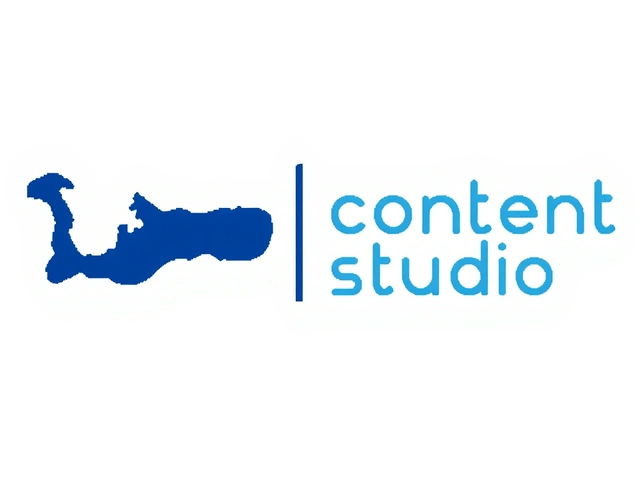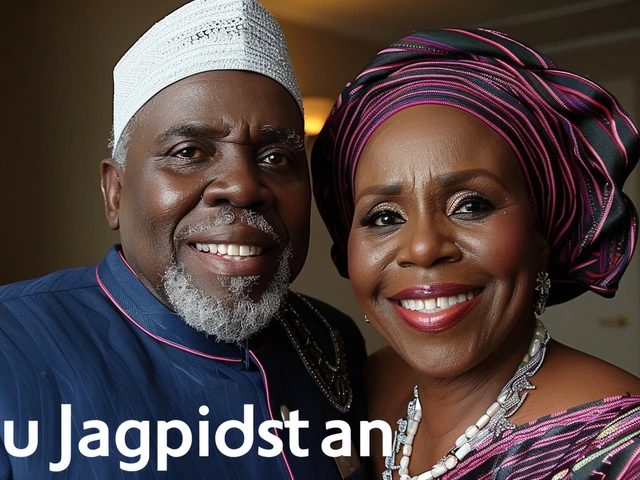Introduction: A Growing Concern
Local government meetings have long been cornerstones of democratic engagement, offering citizens a platform to voice their opinions, concerns, and criticisms. However, recent years have seen a troubling rise in instances of hate speech during public comment sessions. This trend poses significant challenges for local officials tasked with maintaining order, ensuring respectful discourse, and upholding the law.
The Legal Framework
The Open Public Meetings Act (OPMA) mandates that public comment opportunities must be provided during regular meetings where final actions are taken. This law underscores the importance of public participation in governance but also places a burden on jurisdictions to manage these sessions effectively. It is critical for local governments to understand the legal boundaries within which they must operate, including the necessity of viewpoint-neutral rules and restrictions on speech.
Understanding Viewpoint-Neutral Restrictions
Viewpoint-neutral restrictions are crucial because they ensure that all citizens have an equal opportunity to speak, regardless of their perspectives. These rules prohibit local governments from discriminating against speech based on the content or viewpoint expressed. However, they do allow for regulations that maintain the decorum and order of meetings. For example, rules can be established to limit the time each speaker has or to prohibit disruptive behavior.

Strategies for Handling Hate Speech
Local governments can adopt several strategies to mitigate the impact of hate speech during public comment sessions. One effective approach is to develop and enforce clear meeting rules. These rules should outline acceptable behavior and the consequences of violations, ensuring that all participants understand the expectations from the outset.
Developing Clear Policies
Having a set of well-defined policies in place is essential. These policies should be readily accessible to both officials and the public. They can include guidelines on what constitutes hate speech, the process for addressing it when it occurs, and the specific actions that will be taken against violators. Clear policies help in setting the tone for the meeting and provide a framework for officials to follow when disruptions arise.
Consulting Legal Counsel
Jurisprudence is often complex and nuanced when it comes to free speech and public meetings. Therefore, it is advisable for local governments to consult their legal counsel regularly. By working closely with attorneys, jurisdictions can better understand their legal options, ensuring that any measures taken to address hate speech are within legal bounds.
Practical Measures by Local Officials
At a recent virtual forum hosted by the Association of Washington Cities (AWC) titled 'Hijacked by Hate Speech,' local officials shared valuable insights and experiences. One recommendation was the use of prepared scripts to address disruptions swiftly. Scripts provide a pre-determined, impartial response to incidents of hate speech, helping officials manage the situation more effectively and consistently.
Additionally, some jurisdictions have considered revising their public comment rules. For example, capping the duration of comments, requiring speakers to register in advance, or even moving to a written comment system can all reduce opportunities for hate speech while still allowing public participation.
Training and Resources
The Municipal Research and Services Center (MRSC) offers a wealth of resources, including the guide 'Strategies for Managing Difficult Public Meetings.' These resources can be invaluable for local governments looking to better equip their officials and staff. Training programs can also play a significant role, providing officials and staff with the skills and confidence to handle difficult situations effectively.
| Key Strategies for Managing Hate Speech | |
|---|---|
| 1. Develop Clear Meeting Rules | Outline acceptable behaviors and set consequences for violations. |
| 2. Viewpoint-Neutral Regulations | Implement restrictions that do not discriminate based on viewpoints. |
| 3. Use Prepared Scripts | Have neutral responses ready to address disruptions promptly. |
| 4. Consult Legal Counsel | Ensure all actions taken are within legal parameters. |
| 5. Training and Resources | Utilize available resources and training to empower officials. |

Case Studies and Examples
Several jurisdictions have implemented innovative approaches to managing hate speech. For instance, an Orange County, CA memo detailed specific strategies that have proven effective in their community. These strategies include increasing security presence at meetings, deploying de-escalation techniques, and offering channels for written comments that can be reviewed and moderated before being shared publicly.
Another noteworthy example comes from Seattle, where officials have partnered with local community organizations to provide education on hate speech and its impact. These collaborations aim to foster a more inclusive and respectful public discourse, emphasizing the community's collective responsibility to uphold these values.
The Role of Technology
Technology can also play a pivotal role in managing public comment sessions. Many jurisdictions have transitioned to virtual or hybrid meetings, especially in the wake of the COVID-19 pandemic. This shift has introduced new tools and capabilities, such as muting or removing disruptive participants, that can help control the meeting environment more effectively.
Moreover, technology allows for the recording and archiving of public comment sessions. These records can serve as invaluable documentation if legal issues arise or if there is a need to review and improve public comment policies.

Conclusion: Striving for Balance
Balancing the right to free speech with the need to maintain respectful and orderly public meetings is an ongoing challenge for local governments. By developing clear policies, engaging in regular legal consultation, utilizing prepared scripts, and leveraging technology, jurisdictions can better navigate this complex landscape. The ultimate goal is to create an environment where all voices can be heard without fear of hate or disruption, thereby strengthening the democratic process and fostering a more inclusive community.
The insights shared by local officials and experts underscore the importance of proactive preparation and responsiveness. As the landscape of public discourse continues to evolve, so too must the strategies used to manage it. By staying informed and adaptable, local governments can ensure that their public meetings remain productive, respectful, and legally compliant.






Henry Cohen
June 26, 2024 AT 01:25Honestly this whole "hate speech" hysteria is just a flimsy excuse for censors to shut down any dissenting voice lets not forget the First Amendmnt still applies in local meetings too
Mark Langdon
June 26, 2024 AT 22:31Hey, I get where you’re coming from, but we also have to keep the space safe for everyone. A balanced rule set can protect both free speech and community dignity.
Ciara Russell-Baker
June 27, 2024 AT 19:38Look, i kinda think the article overcomplicates a simple issue. If you set a clear time limit and a basic code of conduct, most folks will behave. No need for a legal mumbo jumbo.
Aaron Samarita
June 28, 2024 AT 16:45Wow, another policy memo? Spare us.
Daisy Pimentel
June 29, 2024 AT 13:51We must remember that the moral fabric of a community is woven through mutual respect. When hate speech infiltrates civic discourse, it erodes that fabric. It's not just a legal issue; it's an ethical imperative. Local governments have a duty to uphold dignity as well as law. By crafting clear policies, they demonstrate a commitment to the common good. Training staff to recognize and defuse hateful rhetoric is equally vital. Moreover, community outreach can foster empathy, reducing the likelihood of hateful outbursts. In short, the fight against hate speech is a fight for the soul of our democracy.
Ellen Ross
June 30, 2024 AT 10:58One must appreciate the nuanced grandeur of municipal governance-truly, imposing a lexical hierarchy upon public discourse elevates civic engagement to an art form. Yet, the occasional vitriolic outburst threatens to shatter this delicate tapestry; hence, procedural rigor is indispensable.
Fabian Rademacher
July 1, 2024 AT 08:05Ever notice how every time a city tightens speech rules, the “deep state” whispers about a hidden agenda? I bet there’s a whole network of shadow groups feeding off these meetings.
Terrell Mack
July 2, 2024 AT 05:11Sounds like a solid plan. Training and clear scripts can really take the edge off when things get heated. Keep it chill, folks.
Ashlynn Barbery
July 3, 2024 AT 02:18From an administrative perspective, establishing a written comment portal can provide a verifiable audit trail, which may prove indispensable in any subsequent litigation. Moreover, written submissions can be pre‑screened for compliance with the council’s code of conduct, thereby minimizing on‑the‑spot disruptions.
Sarah Graham
July 3, 2024 AT 23:25I totally agree that a written option could help. It’s a gentle way to include every voice without the drama of live sessions.
Jauregui Genoveva
July 4, 2024 AT 20:31Honestly, all this “policy” talk feels like a way to silence dissent 🙄. Let’s just let people speak their minds, even if it’s uncomfortable. 🤷♀️
naman sharma
July 5, 2024 AT 17:38It is evident that the push for stringent speech controls is part of a broader stratagem to centralise authority. By curbing public discourse, the architects of this agenda aim to eliminate dissent before it coalesces.
Quinten Squires
July 6, 2024 AT 14:45While the article presents a commendable overview of procedural safeguards, it omits several critical dimensions that warrant deeper consideration. First, the psychological impact of hate speech on marginalized participants can manifest as chronic stress, which in turn diminishes civic engagement. Second, the legal doctrine of viewpoint neutrality, although theoretically robust, often falters in practice when administrators exercise discretion over what constitutes "disruptive" conduct. Third, technology-mediated meetings introduce new complexities: the ability to mute participants can be misused as a form of digital censorship. Fourth, the role of community partnerships in preemptively addressing hateful rhetoric is underexplored; collaborative education initiatives can preempt many incidents. Fifth, the allocation of resources for staff training is frequently inadequate, leading to inconsistent enforcement. Sixth, the archival records of public comments, while valuable for accountability, raise privacy concerns, especially when personal identifiers are retained. Seventh, the adoption of written-comment portals, though beneficial for moderation, may inadvertently suppress spontaneous dialogue. Eighth, legal counsel, while essential, must navigate a labyrinth of federal, state, and local statutes that sometimes conflict. Ninth, the psychological safety of council members themselves is at risk when faced with targeted vitriol, necessitating support mechanisms. Tenth, there is a need for clear metrics to evaluate the effectiveness of any implemented policy, such as reductions in reported incidents. Eleventh, the public’s perception of over‑regulation can erode trust in local institutions. Twelfth, iterative policy review cycles, involving stakeholder feedback, are crucial for maintaining relevance. Thirteenth, cross‑jurisdictional learning, perhaps through a shared best‑practice repository, can accelerate improvement. Fourteenth, the interface design of virtual meeting platforms should prioritize accessibility while providing moderation tools. Fifteenth, finally, any strategy must balance the protection of free expression with the imperative to cultivate an inclusive civic environment. By integrating these considerations, municipalities can craft a more holistic and resilient framework.
Tyler Manning
July 7, 2024 AT 11:51Our nation’s heritage demands unwavering defense against any attempt to dilute the patriotic narrative. Local councils must act decisively to prevent subversive rhetoric from undermining American values.
james patel
July 8, 2024 AT 08:58From an operational governance perspective, the implementation of a tiered moderation protocol-incorporating both pre‑screening algorithms and real‑time adjudication-optimizes compliance while preserving procedural efficiency.
Scarlett Mirage
July 9, 2024 AT 06:05It is absolutely essential, indeed imperative, that we recognize the ethical ramifications of suppressing dissent; nevertheless, the line between protection and oppression must be drawn with exquisite precision, lest we compromise the very principles we purport to uphold.
Ian Sepp
July 10, 2024 AT 03:11In light of the discussed strategies, it would be prudent for councils to adopt a formalized policy framework, ensuring both legal compliance and the preservation of civil discourse.